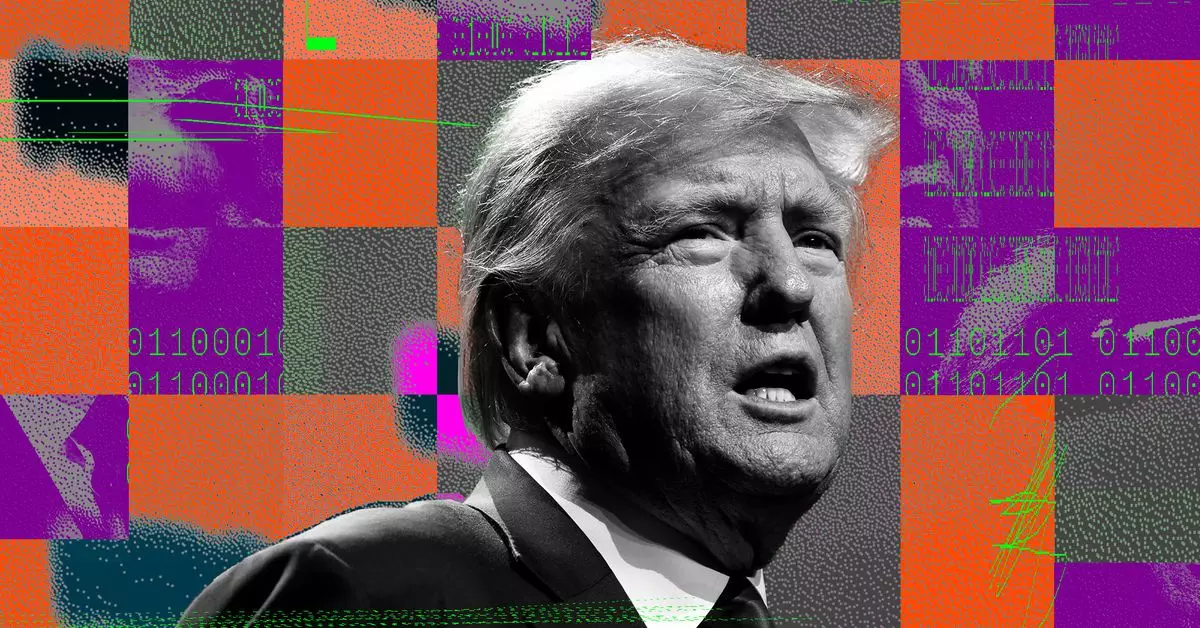In a significant move reflecting the ongoing threat posed by cyber warfare, the U.S. Department of Justice has indicted three Iranian nationals allegedly affiliated with the Islamic Revolutionary Guard Corps (IRGC) for launching a cyberattack against Donald Trump’s presidential campaign. The accusation is not merely an isolated incident but part of a larger narrative emphasizing the vulnerabilities of political campaigns in the face of increased cyber threats. The indictment details how these individuals utilized sophisticated social engineering techniques, such as spear phishing, to gain unauthorized access to sensitive campaign information.
Methods Employed in the Attack
The hackers’ tactics involved deceiving campaign officials into revealing confidential information, allowing them to hijack account access. Once entrenched within the digital infrastructure of the campaign, they proceeded to steal nonpublic documents and emails, which were subsequently shared with various press outlets. This breach is especially alarming as it undermines the privacy and security that political campaigns depend on, revealing the extent to which adversarial states are willing to go to influence or disrupt democratic processes.
The indictment also highlights the involvement of Respina Networks, an Iranian internet service provider. This connection is crucial as it illustrates how the hackers capitalized on “unrestricted” internet access to facilitate their criminal activities. They cleverly employed a commercial virtual private network (VPN) to create multiple deceptive domain names such as “tinyurl.ink” and “mailer-daemon.online,” targeting victims with misleading communications that masked their true intentions.
While the indictment does not specify the presidential candidate being targeted, it aligns with confirmed reports from the Trump campaign indicating that they had experienced hacking attempts. The implications of such attacks are profound, as they raise serious questions regarding the integrity and security of electoral processes. The public’s trust in democratic institutions hinges on the assurance that they are protected from foreign interference, making these breaches particularly concerning.
Independent journalist Ken Klippenstein recently unearthed documents purportedly linked to vice presidential candidate JD Vance, which purportedly originated from the hackers. However, his subsequent suspension from the social media platform X raises ethical questions regarding the relationship between journalism and cybersecurity. It underscores the complicated dynamics journalists face when reporting on sensitive political issues.
The charges brought against the three hackers include wire fraud, material support to a terrorist organization, and the conspiracy to gain unauthorized access to protected computers. Assistant Attorney General Matthew G. Olsen firmly stated that these attacks represent a direct threat to the integrity of U.S. democratic processes, highlighting the persistent danger posed by state-sponsored cyber actors.
In response to these incidents, the U.S. Treasury Department has offered a reward of up to $10 million for information leading to the apprehension of these suspects. This sizable incentive reflects the government’s recognition of the growing threat posed by cybercriminals and the need for collaborative efforts to combat these challenges.
As the landscape of cyber warfare evolves, so too must the strategies employed by authorities to safeguard democratic institutions. The ramifications of these cyberattacks extend beyond the immediate breach, highlighting the critical need for robust cybersecurity measures in protecting sensitive information against a backdrop of increasingly sophisticated threats.


Leave a Reply